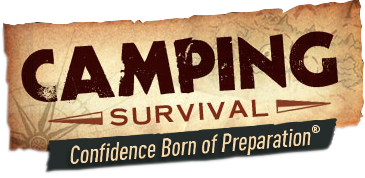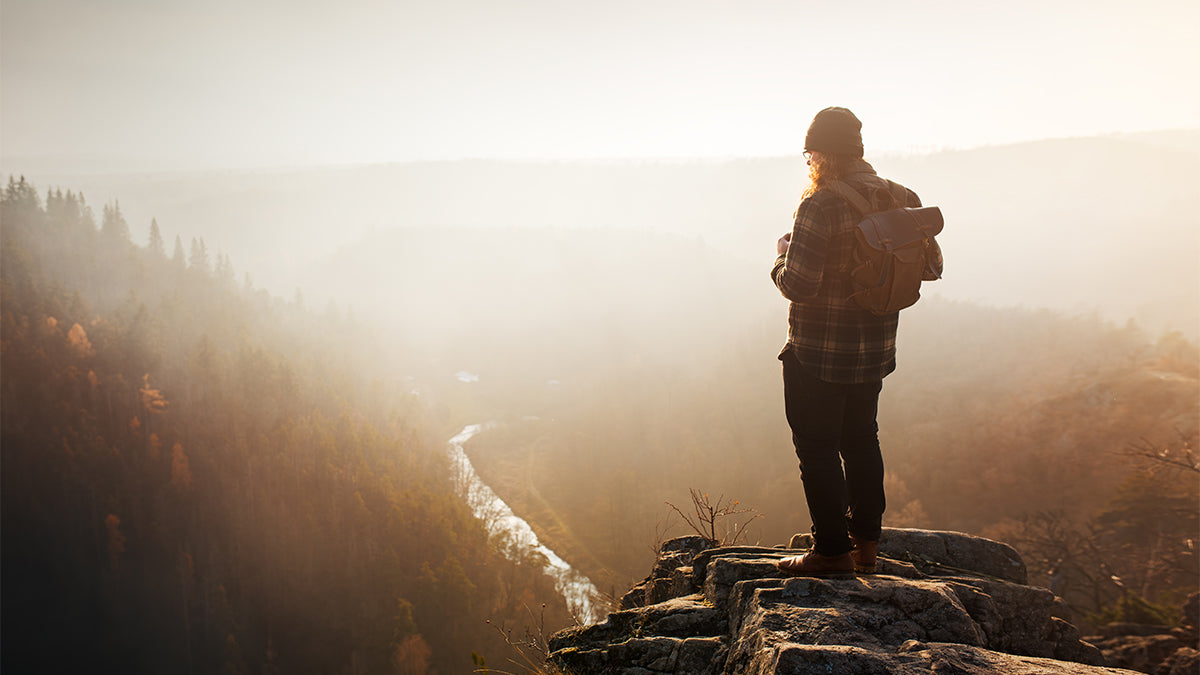A resilient individual stands amidst a rugged wilderness, equipped with a backpack and durable outdoor clothing
In a world stripped of modern conveniences and where paper money is just paper, the true survivor knows that real wealth lies in tradable assets. This is the realm of tactical bartering—a skill as crucial as fire-making or shelter-building in the post-collapse wilderness. Here, goods and skills are your lifeline, and the art of negotiation is your best defense.
Let’s dive into the essentials of survival bartering: what’s in demand, bartering strategies, and how to keep yourself safe.
Key Items for Bartering: What's in Demand?
ESSENTIAL GOODS
Food – In a survival situation, high-calorie foods that require minimal preparation are highly sought after as they provide essential energy and ultimate convenience. Items like ready-to-eat meals, jerky, and dehydrated fruits are particularly valuable. The ability to trade these items can be a lifesaver when resources are scarce.
Water Purification – Clean water is a necessity, making portable filters and purification tablets highly valuable. Products from trusted brands like Aquamira and Alexapure are top trading items. These tools are usually lightweight, making them ideal for carrying and bartering.
Medical Supplies – Basic medical supplies—especially comprehensive first aid kits, anti-radiation tablets, and essential medications like antibiotics and pain relievers—are always in high demand. Broad-spectrum antibiotics, such as Amoxicillin, and pain relievers like Ibuprofen are particularly valuable for their wide range of uses. Medical supplies that cater to a variety of needs are always a top priority in trade.

LONG-LASTING TOOLS AND EQUIPMENT
Knives and Multi-Tools – A sturdy, reliable knife or well-made multi-tool is essential in survival situations. These tools are versatile, aiding in everything from preparing food to making repairs, and their durability makes them desirable items for barter.
Durable Clothing – Clothes that can withstand harsh conditions—like insulated, waterproof, and breathable fabrics—are perfect for bartering. Items like jackets or boots from reputable outdoor brands can be invaluable, especially in harsher climates.
LUXURY ITEMS
Coffee, Chocolate, or Alcohol – These items offer comfort and some normalcy, making them surprisingly valuable in tough times. Spirits with higher alcohol content are particularly sought after due to their long shelf life and medical benefits. Quality coffee and dark chocolate are also excellent bartering items craved when morale is low.
Bartering in the Wilderness: A Survivalist's Edge
ESSENTIAL WILDERNESS TRADE ITEMS
Survival Gear – Items such as fire starters, portable water filters, and compact shelter materials are very desirable due to their utility and ease of use. These items can make the difference between life and death in the wilderness, making them top commodities.
Navigation Tools – Reliable navigation tools—like compasses, solar-powered GPS devices, and detailed maps—are essential for safe travel in unknown terrain. GPS devices that function without cellular signals and maps that detail local areas are especially valuable.
[RELATED READ: Navigating Your World Without GPS]
Hunting and Fishing Supplies – Traps, fishing gear, and local knowledge about hunting grounds are crucial to acquiring food in the wilderness. Fishing gear that can be used in various water bodies and versatile traps that can catch different types of small game are very adaptive to different environments and make particularly preferable trading items.

BARTERING YOUR WILDERNESS SKILLS
Tracking and Hunting Expertise – The ability to track and hunt is a highly valued skill. Knowledge of animal tracks, behavior, and habitats can be traded for essential supplies. This expertise is particularly valuable in areas where hunting is a primary food source.
[RELATED READ: Decoding Wildlife Behavior: These 12 Signs Will Save Your Life]
Wilderness First Aid – Being able to treat common injuries and apply natural remedies isn’t just important for yourself and your party, it’s also a barterable skill. In situations where medical help is not readily available, your knowledge can be traded for hard goods and other valuables.
Foraging and Wildcrafting – Since the art of foraging has widely been lost, knowing the ins and outs of edible and medicinal plants will set you apart in a survival situation. The ability to identify and use these natural resources can be traded for a variety of resources, both tangible and informational.
ESTABLISHING TRADE NETWORKS IN THE WILD
Building Connections – Networking with fellow survivalists, local communities, and outdoor groups can create essential trade networks. Once forged, these connections can provide access to a variety of goods and services that might otherwise be inaccessible.
Trust in Remote Areas – In survival scenarios, establishing rapport for fairness in trade is extremely important. With the risk of theft high, your reputation will directly impact your trading opportunities.
THE ART OF NEGOTIATION: BARTERING STRATEGIES
Negotiating in a survival scenario is about more than just getting a fair trade; it's about building relationships, understanding needs, and ensuring longevity in a world where trust is currency. Here are some basic tips for successful negotiation:
- Know the Value: Understand the true value of what you're offering and what you're receiving. This means knowing how each item or skill directly contributes to survival and well-being.
- Communicate Clearly: Be transparent about what you need and what you're willing to trade. Clear communication can prevent misunderstanding and build rapport.
- Practice Empathy: Try to understand the needs and situations of the person you're negotiating with. This can lead to more mutually beneficial trades and long-term trading relationships.
- Be Prepared to Walk Away: If a trade isn't right or feels unsafe, be prepared to walk away. Your safety and survival are paramount.
- Build a Reputation: Be known for fair trading. In a barter economy, your reputation is your most valuable asset.
- Negotiate with Respect: Always approach negotiation with respect for the other party. Remember, the individuals you’re trading with are also trying to survive. Mutual respect can foster ongoing trading relationships and community building.
These negotiation strategies are not just about making a trade; they are about creating a network of mutual support in a world where the economic rules have fundamentally changed.

Safety and Security in Bartering
Precautions During Transactions – Always prioritize safety in bartering situations. Choose public, neutral locations for trades when possible and consider bringing a companion for added security. It’s important to remain vigilant and cautious, especially when trading with unfamiliar individuals.
Avoiding Common Pitfalls – Be aware of potential scams and misleading offers. Familiarize yourself with common deceptive practices and trust your instincts. If a trade seems too good to be true, it likely is. Ensure the quality and authenticity of items before completing a trade.
Case Studies: Successful Bartering Examples
During the economic crisis in Zimbabwe in the late 2000s, hyperinflation rendered the national currency practically worthless. People resorted to bartering goods and services to survive. Farmers would trade produce for medical services, and mechanics would fix cars in exchange for food. This period highlighted the importance of practical skills and essential goods in a bartering economy. It showed how communities can adapt to severe economic challenges by relying on a system of trade based on mutual needs and resources.
In the raw reality of a post-collapse era, bartering is a tactical maneuver. Essentials morph into lifelines, and skills—like foraging and first aid—will be the cornerstone of your survival toolkit. Here, you’re strategically thriving and mastering the art of tactical trade in a world where cash is a relic of the past.
Did we miss anything? Please sound off in the comments below and let us know.



1 comment
I was a carer for people for 20 yrs. When push come to shove, I can help that way. I’m 68 now but I am hoping to help out where needed.